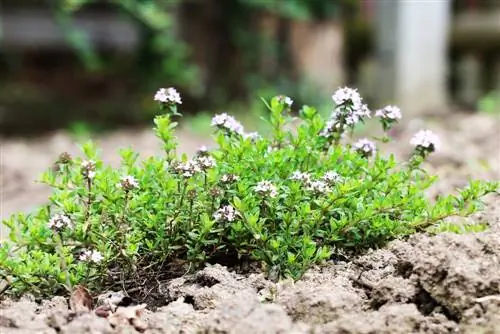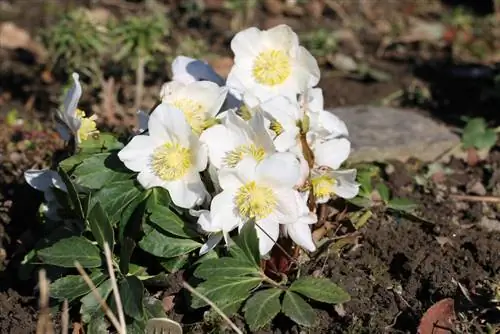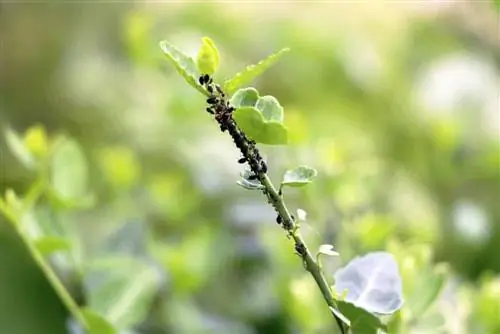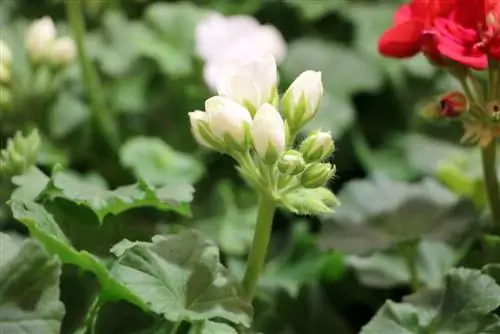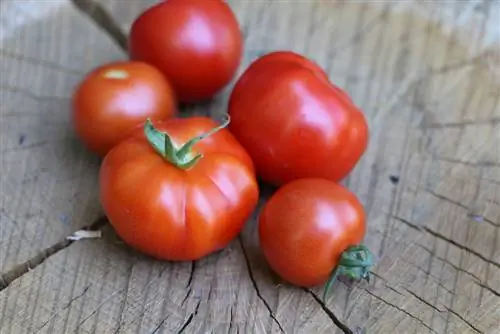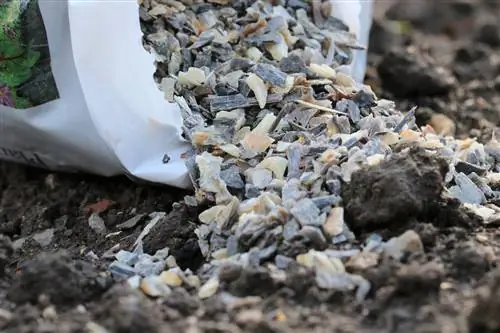- Author admin caroline@plants-knowledge.com.
- Public 2023-12-17 03:39.
- Last modified 2025-06-01 06:48.
Fresh herbs are always welcome in the kitchen. They provide variety in taste and at the same time provide a vitamin injection. However, the herbs should be provided with the best possible water and nutrients. However, how much water and fertilizer a herb needs is very individual. What is beneficial to one herb may be harmful to another.
Which herbs don’t need fertilizer?
Some herbs don't tolerate fertilizer at all. In nature they tend to grow on poor soils, in the mountains or in the Mediterranean area. You can usually recognize these herbs by their very small leaves, which sometimes look needle-like. If they are fertilized anyway, they can even die.
Herbs with low nutrient requirements:
- Rosemary
- Lavender
- Kitchen or garden sage (bot. Salvia officinalis)
- Sorrel
- Coriander
- Fennel
- Curry herb
Which herbs can be fertilized?
Highly consuming herbs need a regular supply of nutrients so that they thrive; they usually grow in humus, nutrient-rich soil. As a rule, however, the dosages here are significantly smaller than for vegetables or lushly flowering plants.
Herbs with moderate nutritional requirements
- Thyme
- Marjoram
- Cress (various types)
- Hyssop
- Dill
- Savory
- Chervil
- Mugwort
Herbs with high nutritional requirements
- parsley
- Chives
- Basil
- Wild garlic
- Tarragon
- Fruit sage (pineapple sage and similar varieties)
- lovage
- Mint
How often should I fertilize?
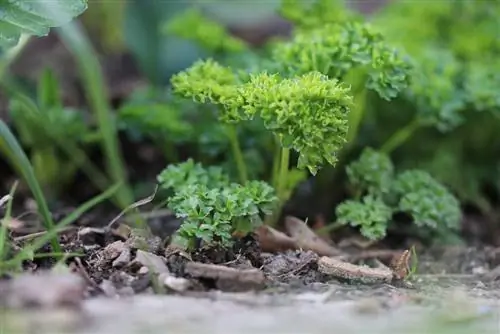
The frequency depends primarily on how or where you grow your herbs. Of course, potted plants need to be fertilized more often than herbs in the bed. The latter usually only need additional nutrients once a year. However, you should fertilize herbs in pots about every four weeks. It doesn't matter whether you grow the herbs outside (for example on the balcony) or inside on the windowsill. The soil in the pot is often exhausted after a few weeks. You can even fertilize visibly weakened but heavily depleting perennials every two weeks until they have recovered significantly.
When should I fertilize?
It is best to fertilize your herbs in spring (March or April), shortly before they sprout again. For herbs with moderate nutrient requirements that are in the bed, this one fertilization is often enough. You should check heavily consuming herbs regularly and fertilize them again if necessary. A second fertilization in July is usually advisable.
Which fertilizer is recommended?
For herbs, you should only use organic fertilizer or special herbal fertilizer if possible. Normal commercial flower fertilizer is not recommended. Your herbs could contain residues of them that you definitely don't want on your plate. In addition, flower fertilizer often changes the taste of your herbs.
Mature compost
Compost is easy to make in your own garden and, when ripe, is particularly suitable for fertilizing herbs. For moderately consuming herbs, it is sufficient to spread a thin layer of compost on the herb bed in spring. Treat strongly depleting herbs to a second dose in summer (July).
Tip:
You can recognize mature compost by its dark color and the pleasant smell of soil.
Horn shavings
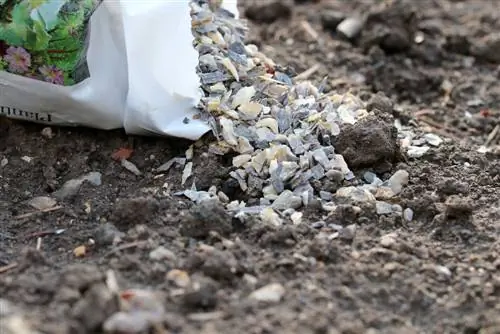
Horn shavings usually act as a long-term mineral fertilizer. The nutrients it contains are released relatively slowly. For most herbs, one dose in spring is sufficient for the whole year. Horn shavings can be administered well in combination with primary rock powder.
Primitive rock flour
Primitive rock flour is available as a powder or rolled into small balls. It contains many minerals. The powder naturally dissolves more easily, even a little faster than horn shavings. If you use primary rock powder and horn shavings together, your herbs will be well looked after.
Liquid herbal extracts
You can easily make liquid herbal extracts, usually referred to as manure or broth, yourself. However, this creates very intense smells. Therefore, you should not necessarily use nettle manure on the balcony, for example. A secluded corner of the garden is best suited, where the resulting smell will not bother you or your neighbors.
The herbal extracts contain important trace elements and nutrients and are easy to dose. Over-fertilization with plant broth is hardly possible due to its low concentration. Depending on the plants used, an herbal extract has additional benefits. Horsetail contains a lot of silica, which inhibits the growth of fungal spores and makes the plant more resilient.
Preparing herbal broth - step by step:
- collect and chop about a kilo of herbs
- put in a bucket
- pour 10 liters of rainwater over it
- place in a sunny and warm place
- DO NOT cover tightly! A coarse cloth prevents too much liquid from evaporating or mosquitoes from settling in the broth.
- stir daily until the fermentation process is complete (takes approx. two weeks)
The fermentation process is finished when no more bubbles form in the liquid
Tip:
Mix a handful of stone powder into the broth, this will bind the smells a little.
Coffee grounds
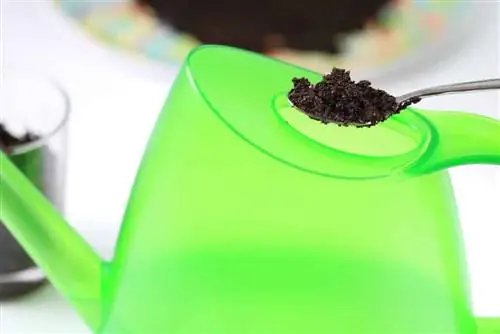
Coffee grounds can deter snails from eating your herbs. At the same time, it is also a weak, slightly acidic fertilizer. A single fertilization usually has no negative consequences, but frequent application lowers the pH of the soil. Lime-loving herbs should therefore not be fertilized with coffee grounds. These include sage, oregano and borage.
Leftover tea
If you like drinking tea, then after it has cooled you can use the leftovers to water your herb beds or pots. However, it should not be sweetened. The type of tea (herbal, fruit or black tea) is not important.
Tip:
Be careful not to drown your herbs. The tea used for fertilization is also irrigation water.
Organic complete fertilizer
You can also use organic complete fertilizer or special herbal fertilizer from the market to fertilize your herbs. However, this form of fertilization is more expensive than the home-made variants and is no better than them. They should be dosed carefully as over-fertilization can harm the herbs.

